Article avaliable also on EPALE.
Now February tends to be one of those months that never ends. Christmas is a vague memory and spring seems like it will never arrive- what better way to put a shine on this dull month than an immersive week playing games, solving riddles and exploring the riveting world of game based learning and gamification in the beautiful, ancient city of Bologna.
I arrived on the evening of the 5th after a slight mishap which saw me re-routed through Milan (tough life! :)) The sun was beginning to set and as I disembarked the train, the smells of charcuterie and fresh focaccia hit me in the food capital of Italy. Dinner was the first port of call, after which it was time to grab my first sleep in Italy and prepare myself for an exciting week.
The first day started with an ice-breaking exercise, my new colleagues and I had to write three facts and one lie about ourselves and then as we made our introductions, we had to guess one another’s lies- this set the mood for the entire week. This was followed by a tour of Bologna and a fantastic dinner. The next day the “serious” work started, Sara our trainer explained how things were going to work, the week was organized into a big game, first we had to create our player “avatars”, and then as we were separated into our respective teams the game began. Time for level 1!
We were first introduced to the differences between Gamification and Game based learning (GBL).
To keep it brief, introducing gamification into the classroom meant using techniques such as; timed challenges, point earning tasks, and other “game inspired” motivational techniques to engage students. On the other hand,” GBL” is the use of actual games in the class to promote the same goals, for example “matching crosswords”. We also delved into the pedagogical value of playing, how it promotes the acquisition of soft skills and stimulates problem solving, encourages experiential learning and increases the motivation of students.
Of course, behind all of the fun and games there exists theory, do students benefit from this type of learning? Can gamification and GBL really influence the classroom experience positively? Here we looked at the “Octalys method”, a study that looked at the motivations of the different types of players, their core drives and some real life examples. Level 2!
Level two delved into the extrinsic motivators and intrinsic motivators, how we could use “white hat” and “black hat” motivators to immerse students in their tasks, and encourage them to move through the game and accomplish their goals.
Games such as “Lupus in Tabula” were used to highlight these types of players, goals and motivations.
Level 3 started with an introduction to more traditional games and web-games that could be used in the class. From here, it was time to start the “10 quest challenge”- we were separated into teams, and each team was given the same set of “quests” to complete i.e. singing a song for 3 minutes, memorizing the core motivators etc. The benefits of this game were:
- To enhances group atmosphere and energy
- To create choice-based lessons and learning pathways that are both personalized and differentiated
- To break down topics/assignments into a menu of choices, mission-sty
- To give learners a sense of agency or autonomy!
- To provide a simple way to gamify learning
In level three we looked at, and played many games “Battleship”, “Omars game”. These games are intrinsically connected with enhancing creativity and imagination, promoting positive atmosphere and energy and providing multiple and inclusive ways of expression.
Now for the last level. Level 4!
- Using game-based mechanics to engage learners and motivate to act and learn outdoor
- Learn to create online Scavenger Hunts to be performed indoor or outdoor
- Learn to create Digital Escape Room style experiences
This was by far the highlight of the week, Sara created an unbelievably fun and interesting outdoor treasure hunt of Bologna. She imparted her knowledge and taught us how to use various applications to create these interactive activities ourselves. The main goal of this type of activity is getting students to apply acquired knowledge to real life, and at the same time, increase focus, and create a positive and fun atmosphere. During the game, we were able to consider the different motivation factors that were introduced to this activity, and see how it pushed us to achieve the overall outcome. Winning!
As we moved through the “levels”, we learnt more and more about how we can introduce these methods into our respective classrooms, and how each game can be adapted to fit the needs of our students. I was particularly interested in the online quiz making tools, the “actionbound” treasure hunt and the google sheets “escape room” activities.
Now I know this all seems like “lots of work and no play” but aside from the fantastic, interesting educational adventures we had with Sara, another person deserves a special mention- Alona. Alona facilitated our city tours, helped drive the dynamic of the group in the classroom and out of the classroom and overall made the trip extra special for all of us.
A massive thank you to Inicijativa for organizing this trip, to Sara for creating and leading an unforgettable course, to Alona for guiding us from one beautiful, interesting site to another, to the wonderful staff of Camplus who made us feel welcome in comfortable surroundings, but most of all to the colleagues I met.
Manuel and Juan- the Spanish “cheers” will never be forgotten, Gruia- you exuded positivity all week and helped cohere the group with your good humour, Alexandra- a real tem player, Cristina and Andreea- the good witches, and Edyta, Paulina, Aneta and Gabriela- you all imparted your own special touch to the week.
I look forward to using these new acquired skills to help create fun and interesting activities that engage our students in Inicijativa and promote inclusive learning. Fun times ahead.
Mobility of course participant is enabled within the project "Step up", code number: 2021-1-HR01-KA122-ADU-000018329. The project is funded by the European Union. Erasmus +: Enriching lives, opening minds.
Stephen Breslin
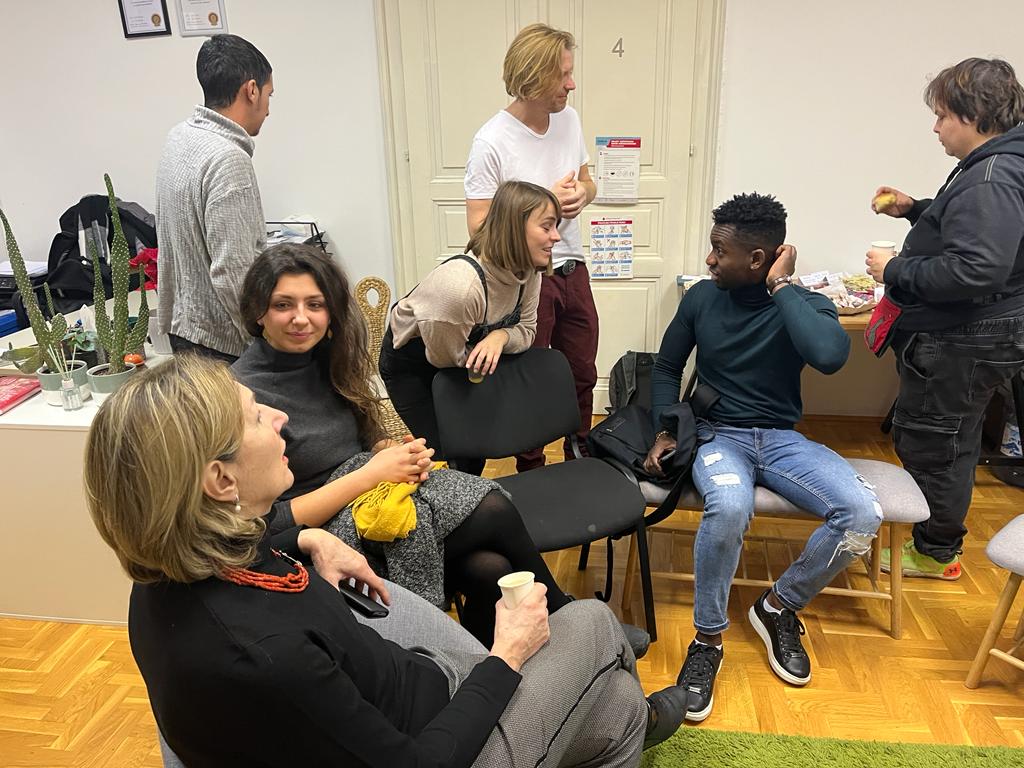
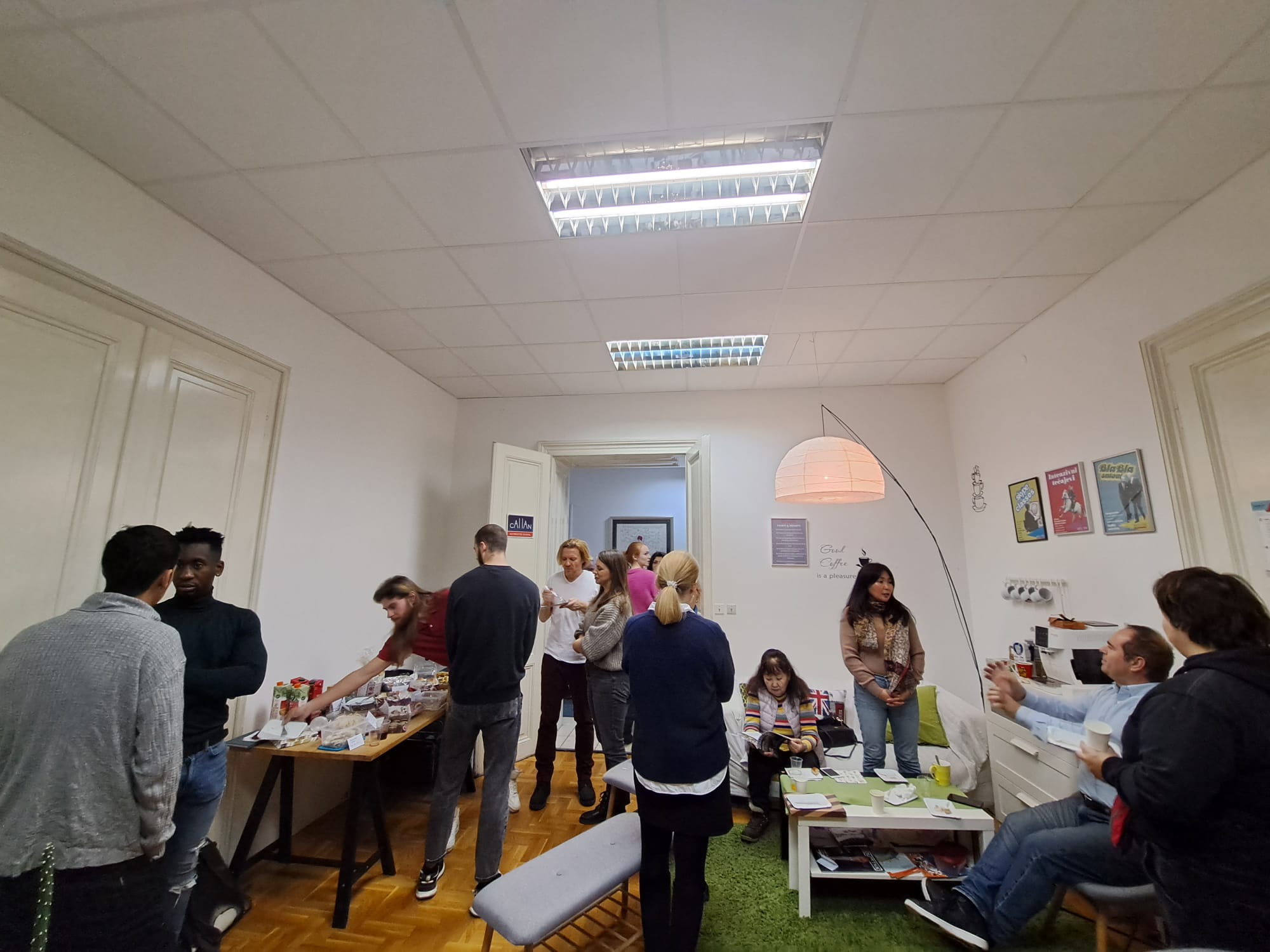
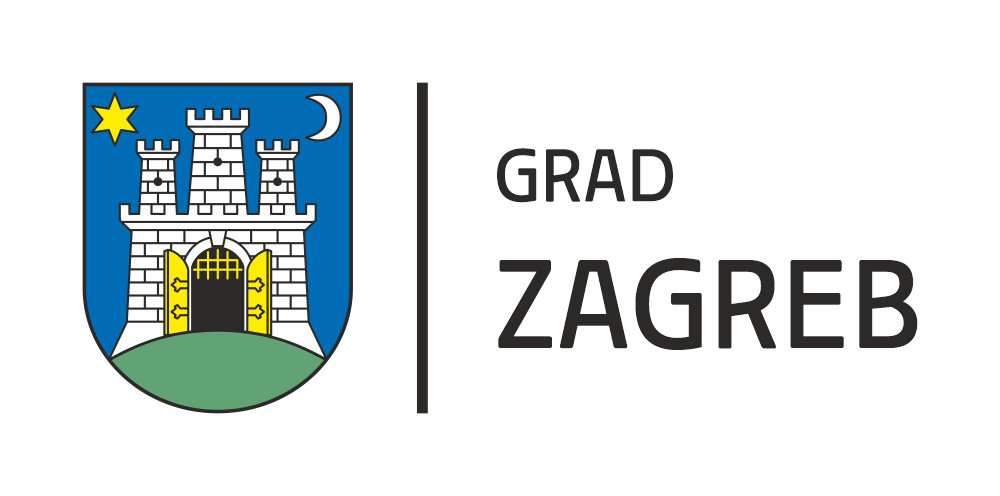
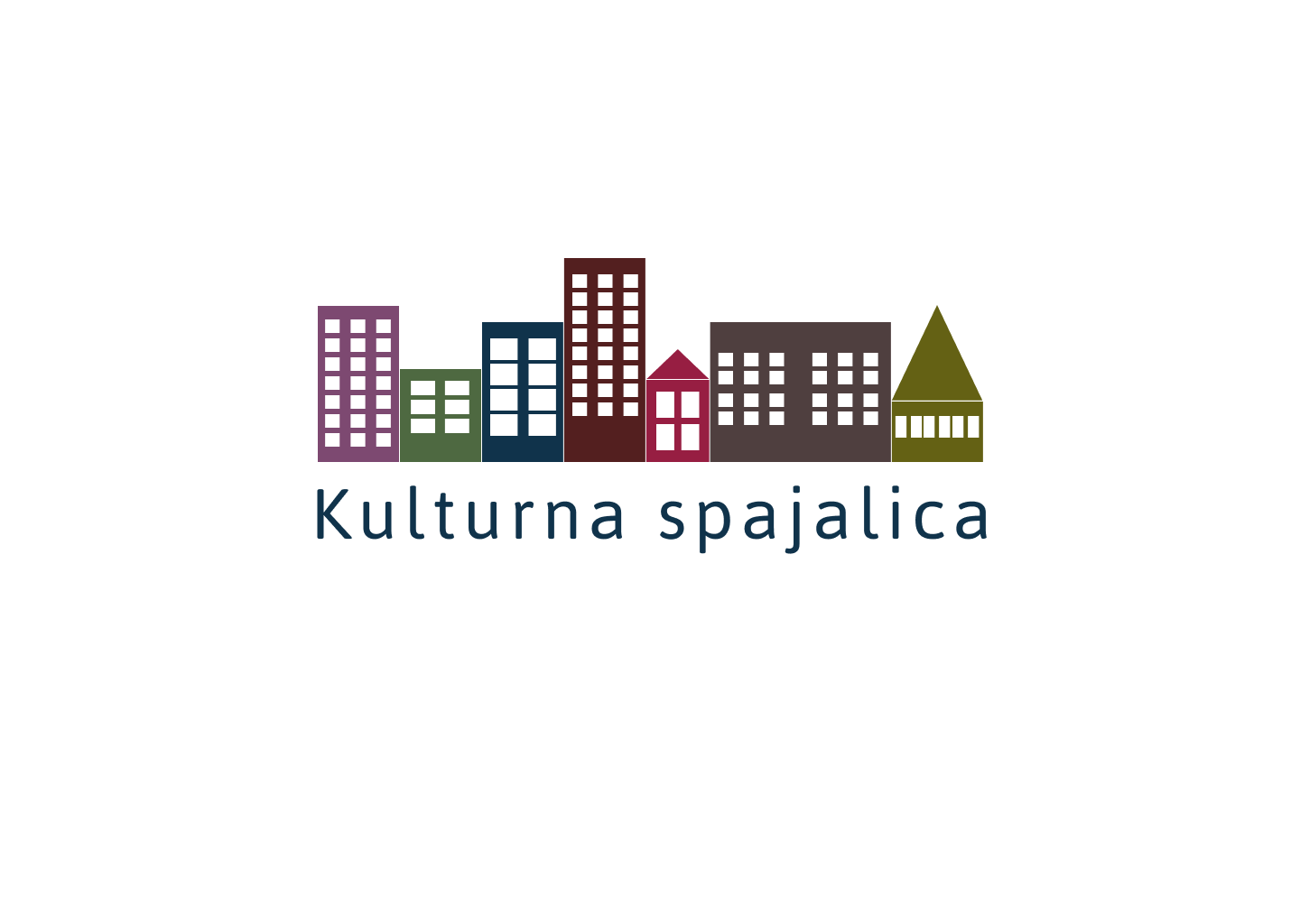
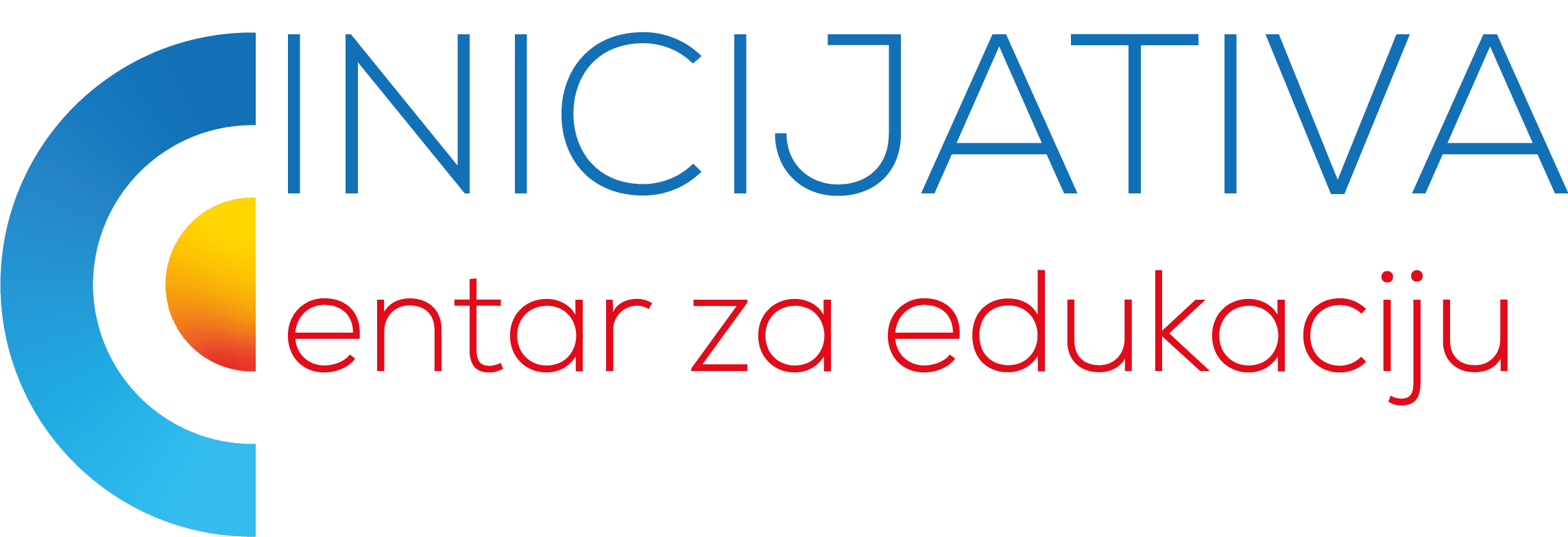
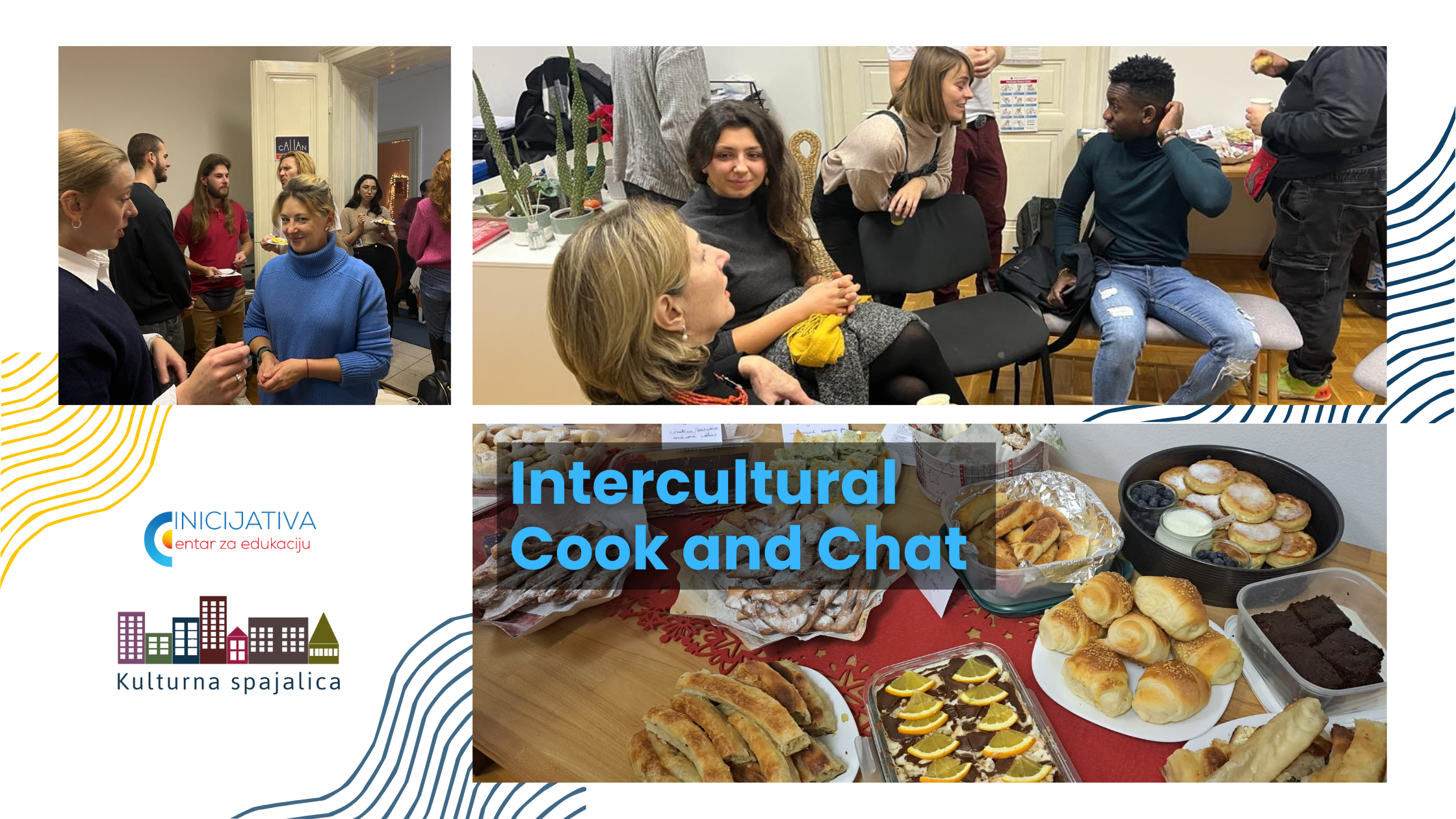
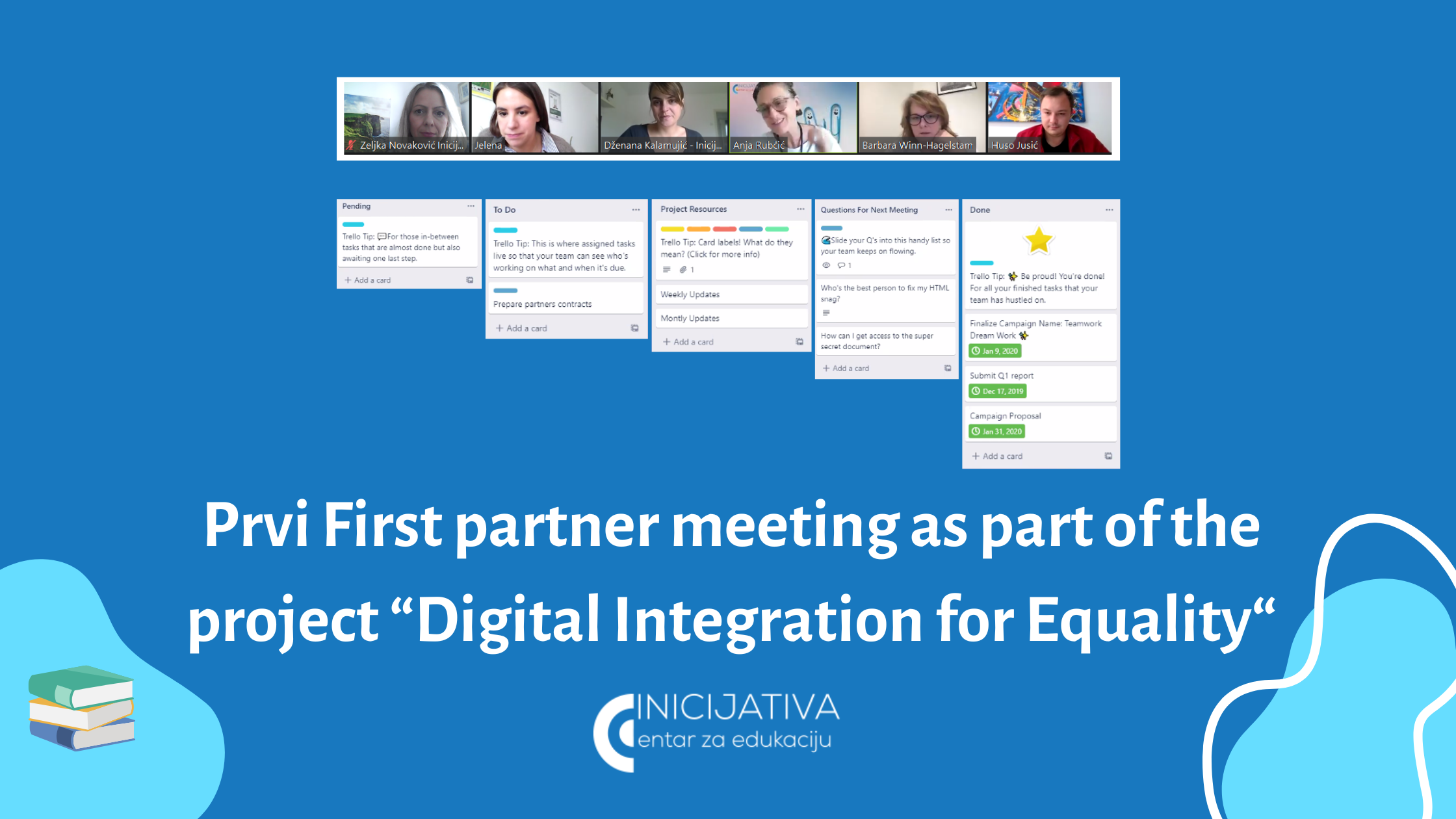
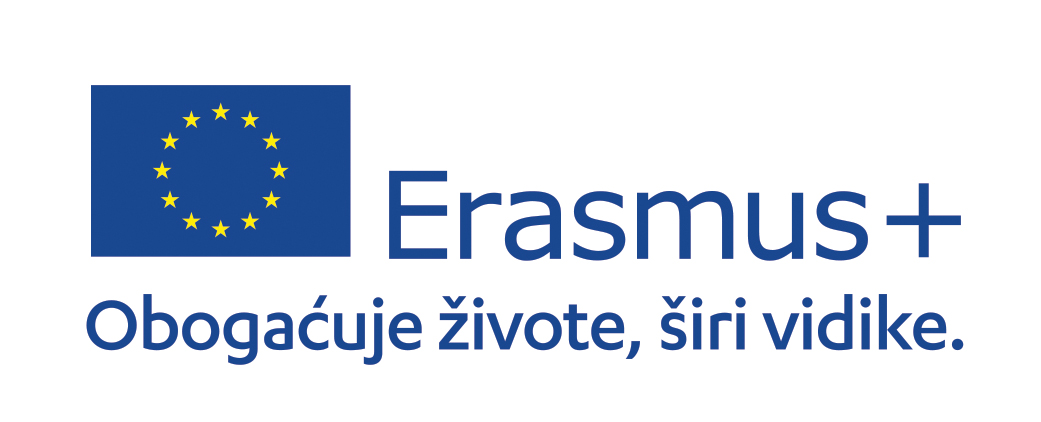
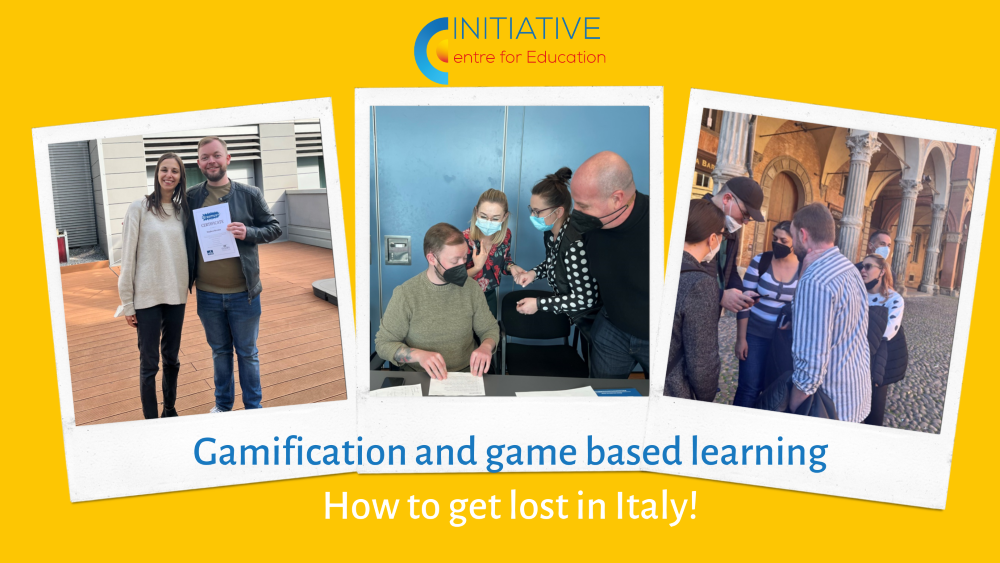


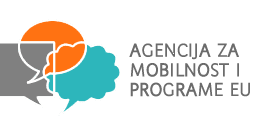
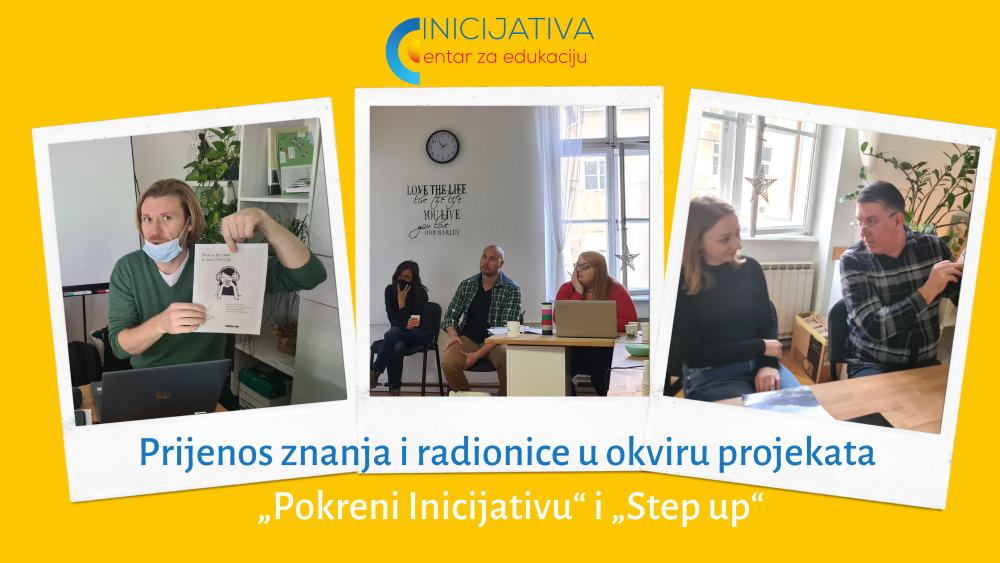
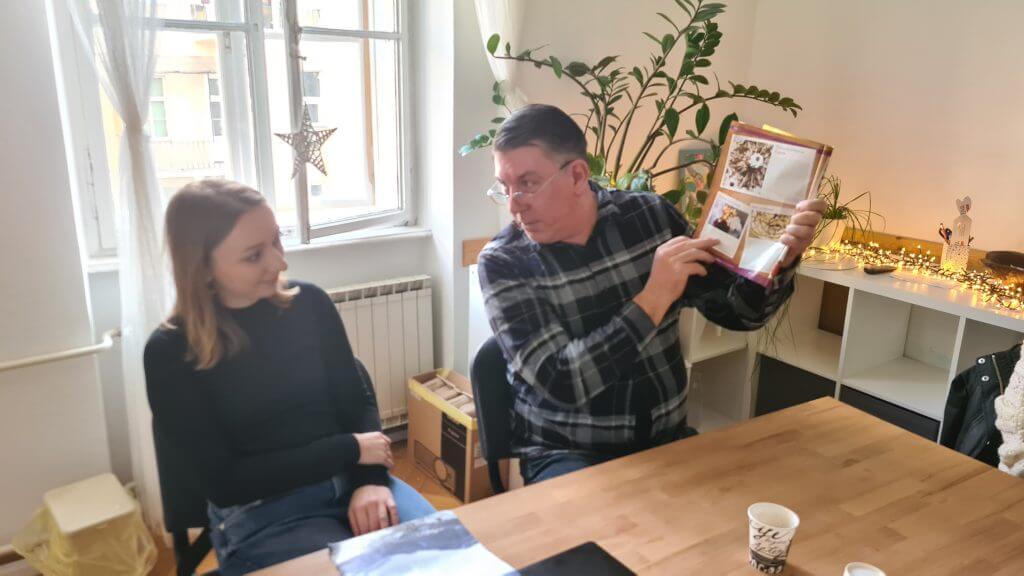
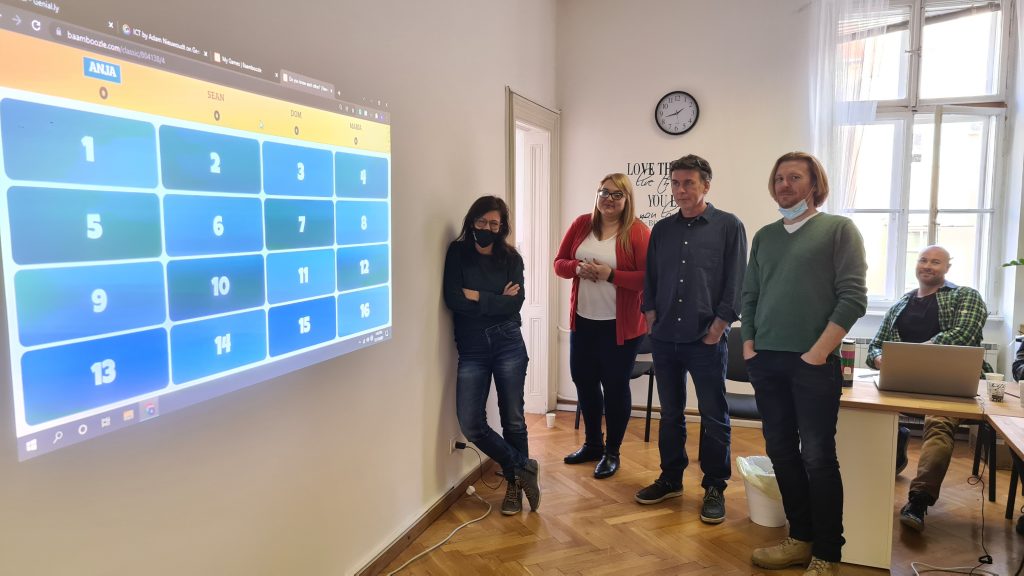
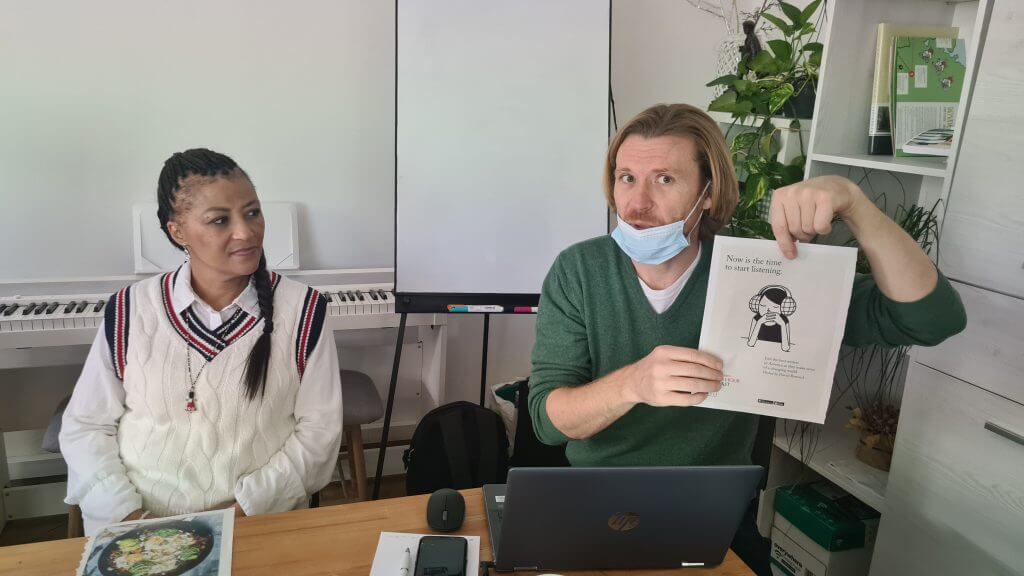
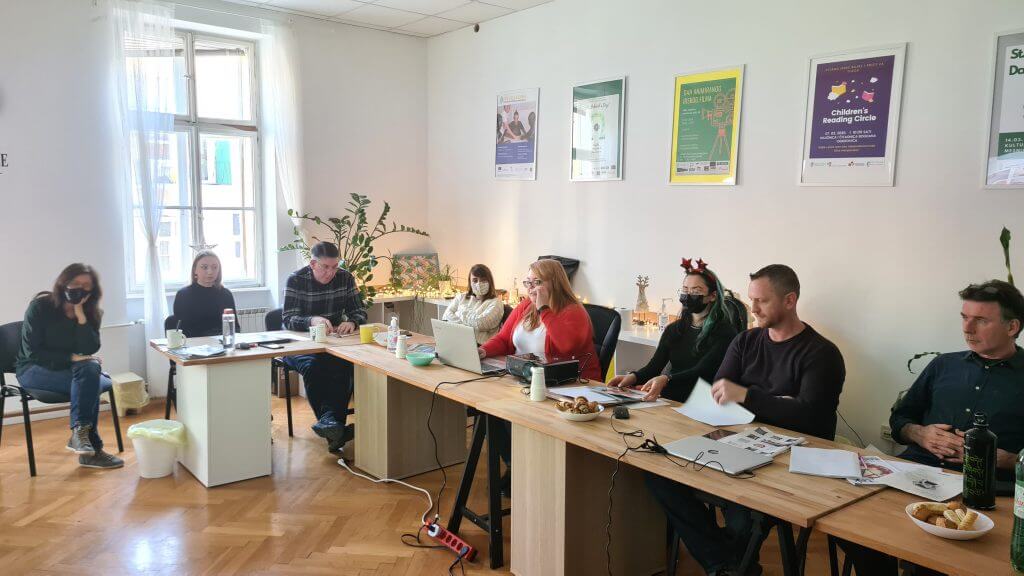
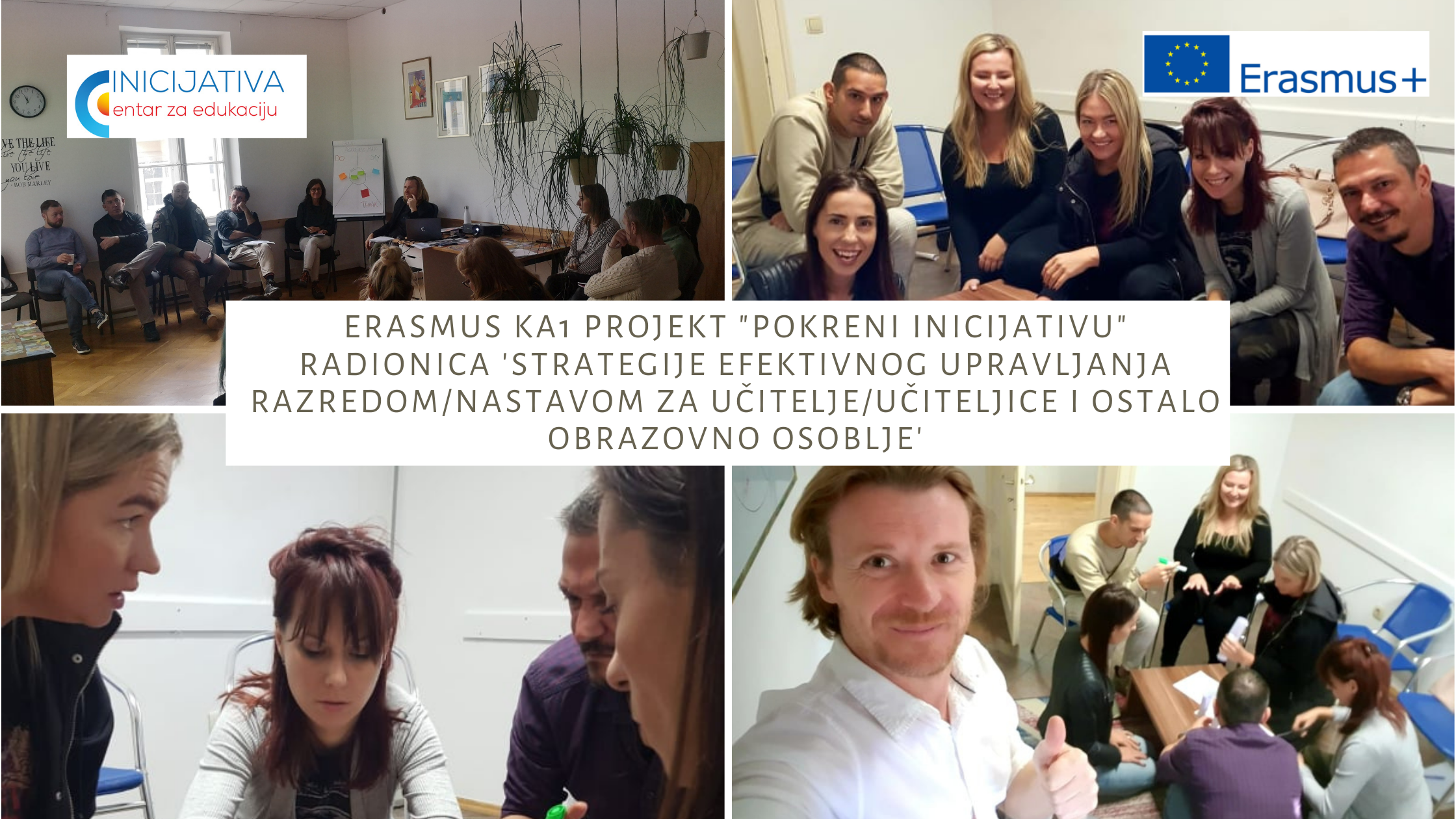
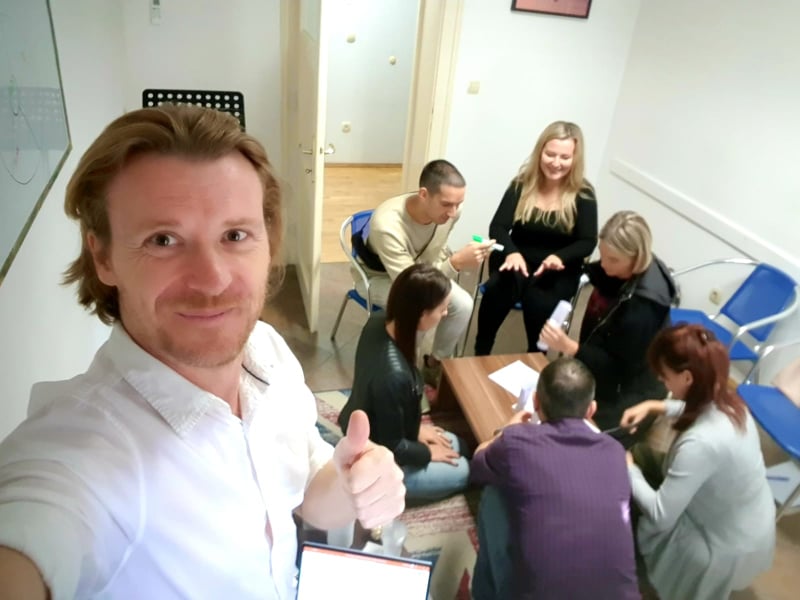
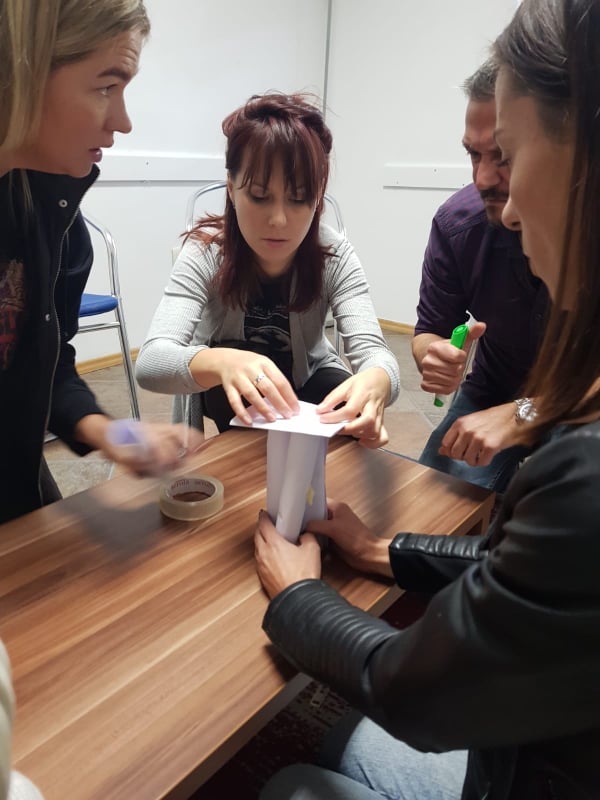
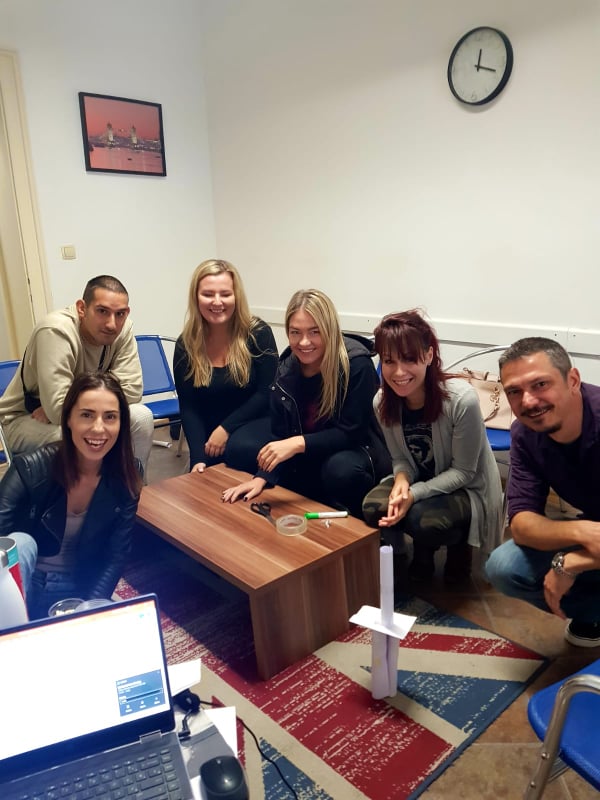
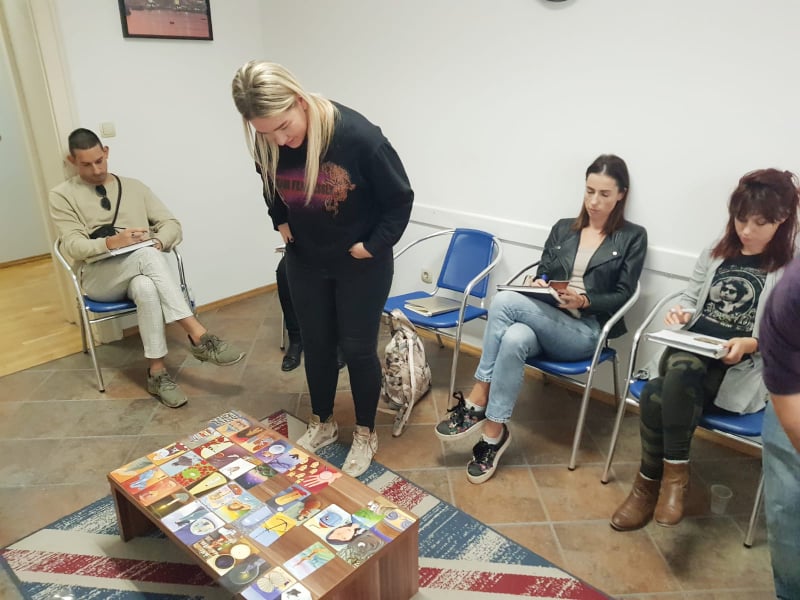
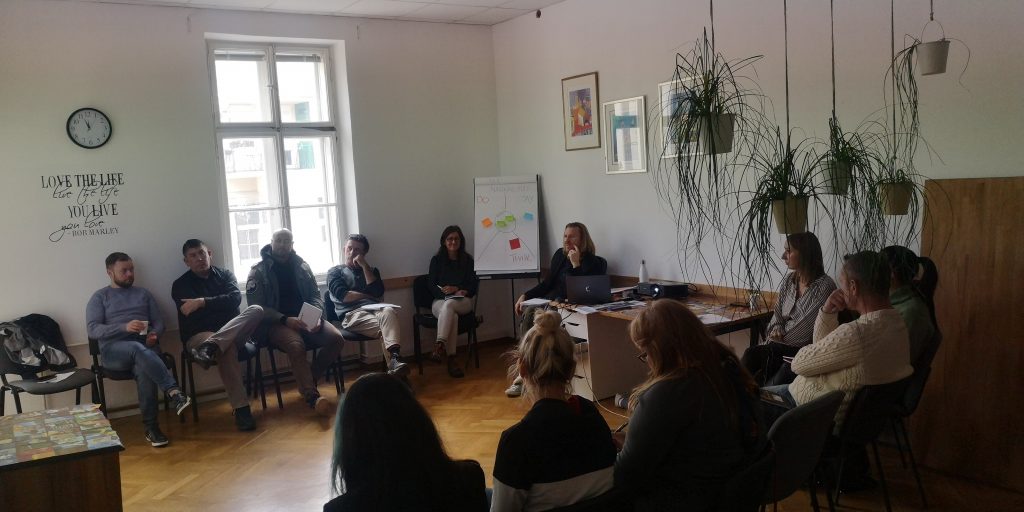
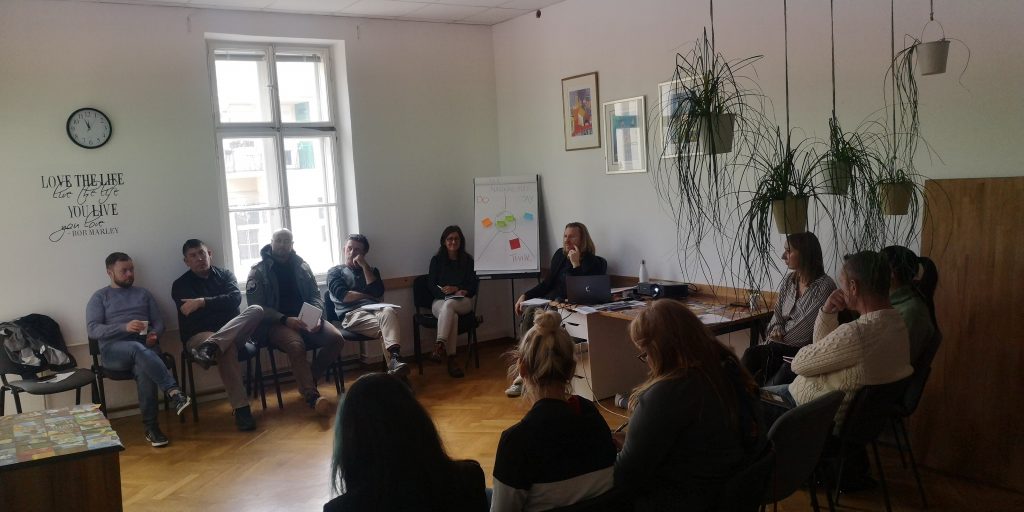
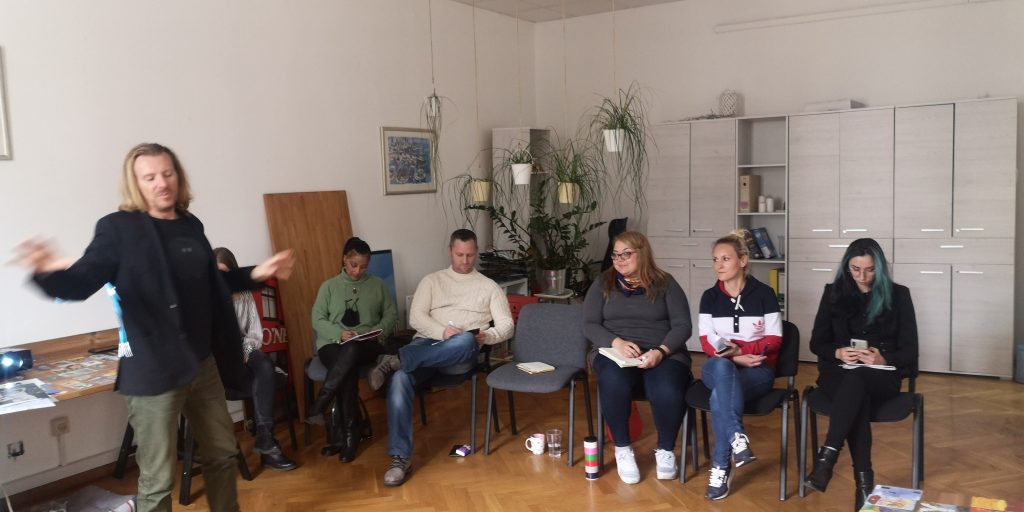
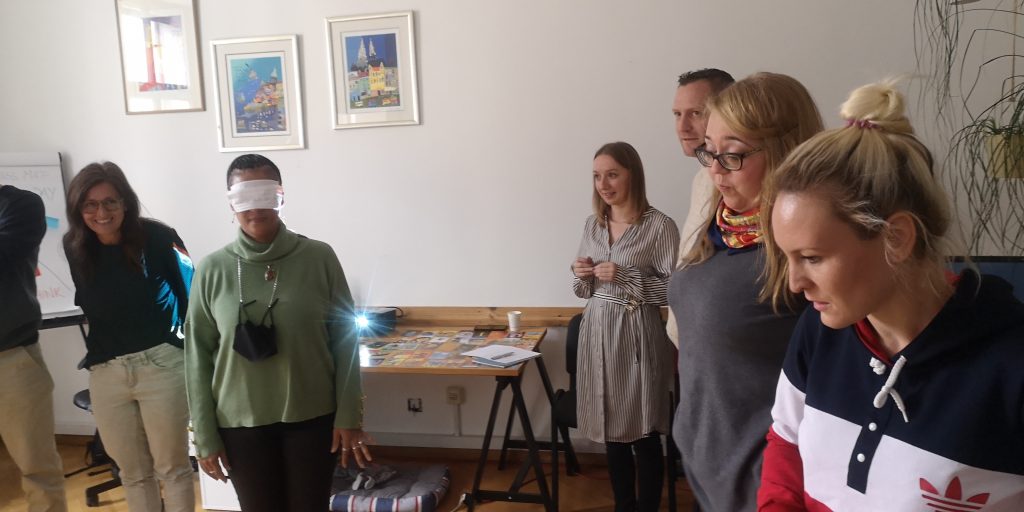
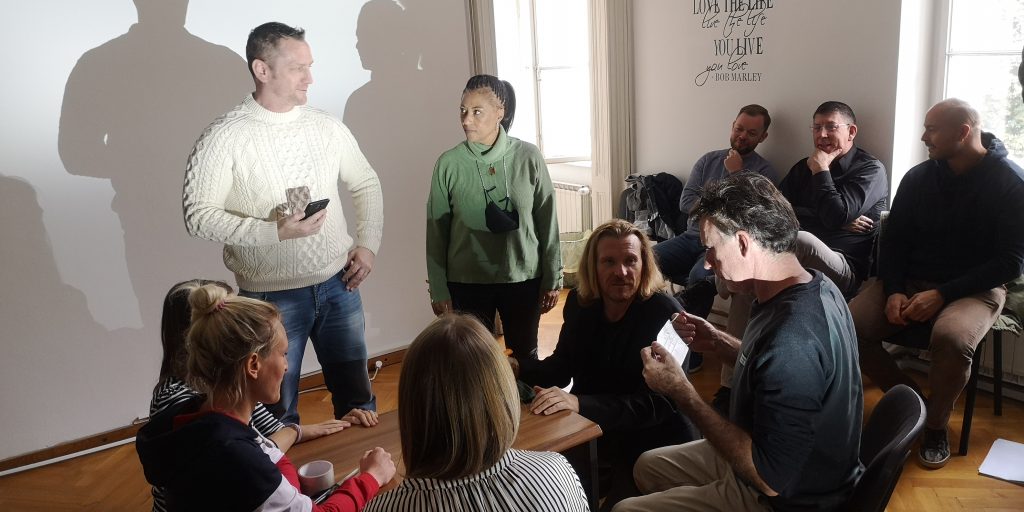
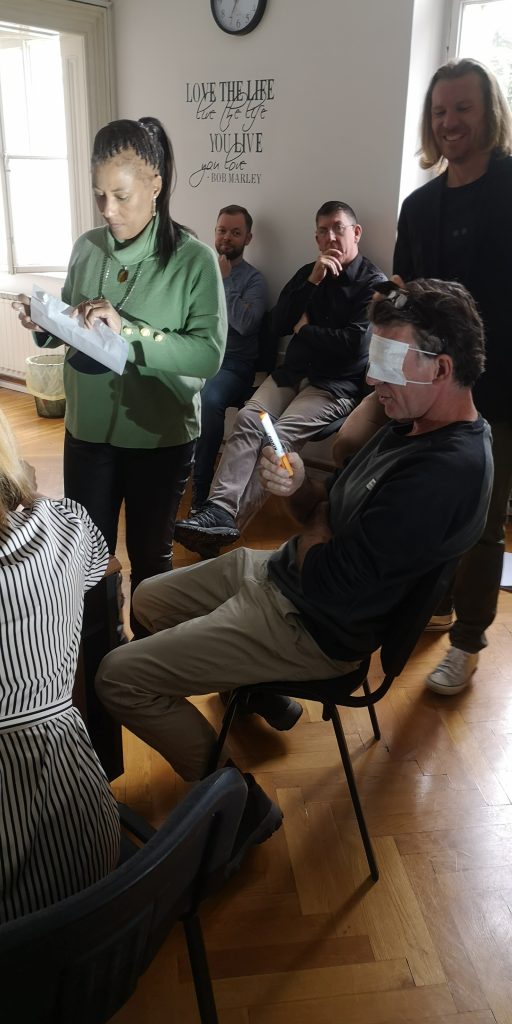
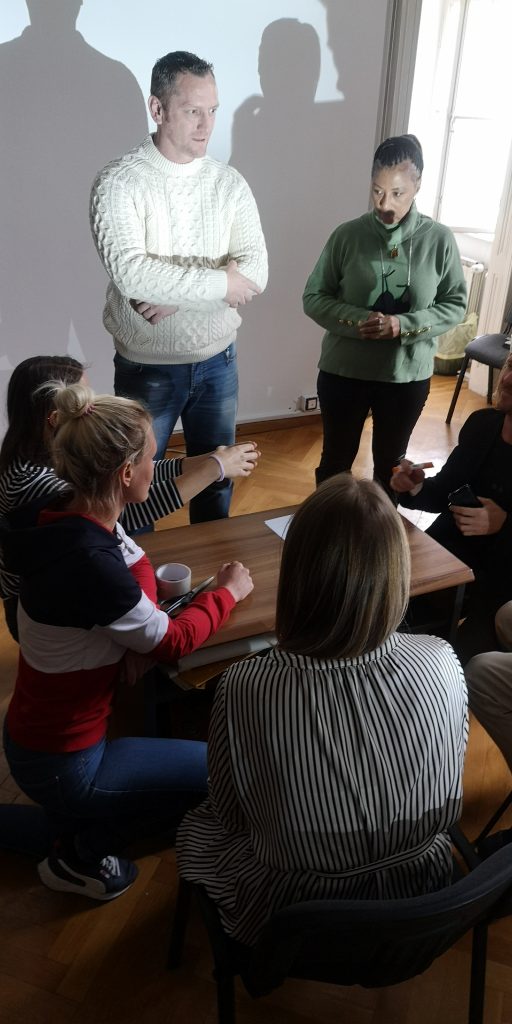
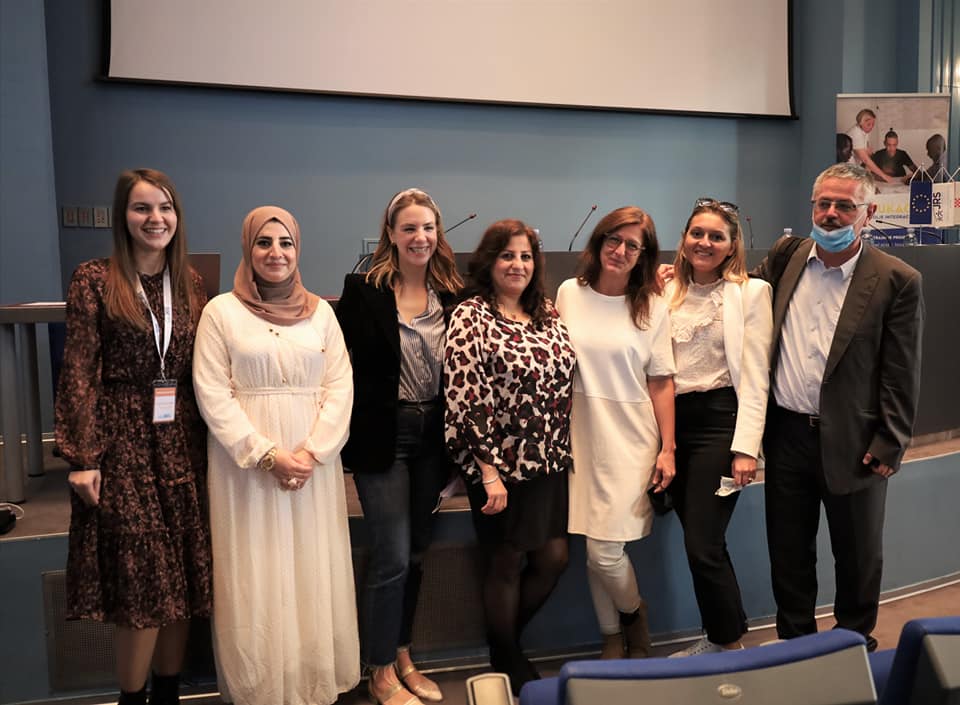
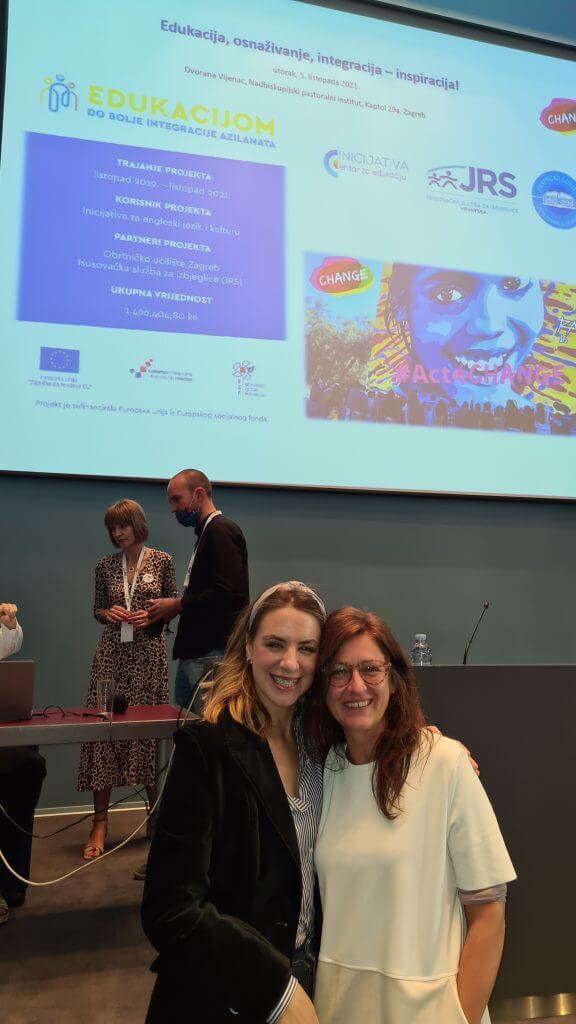
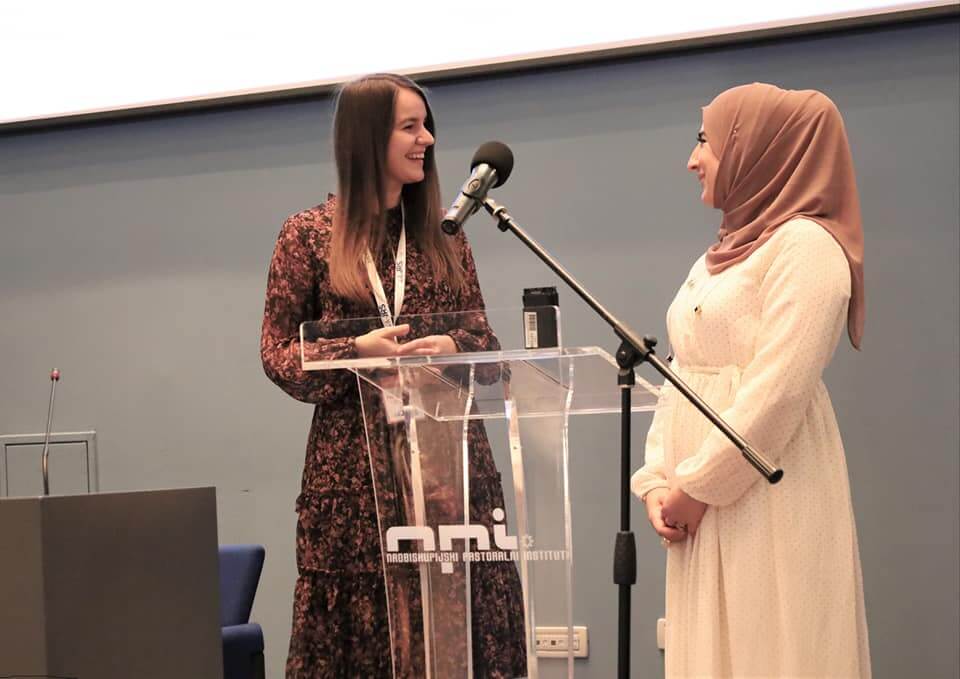
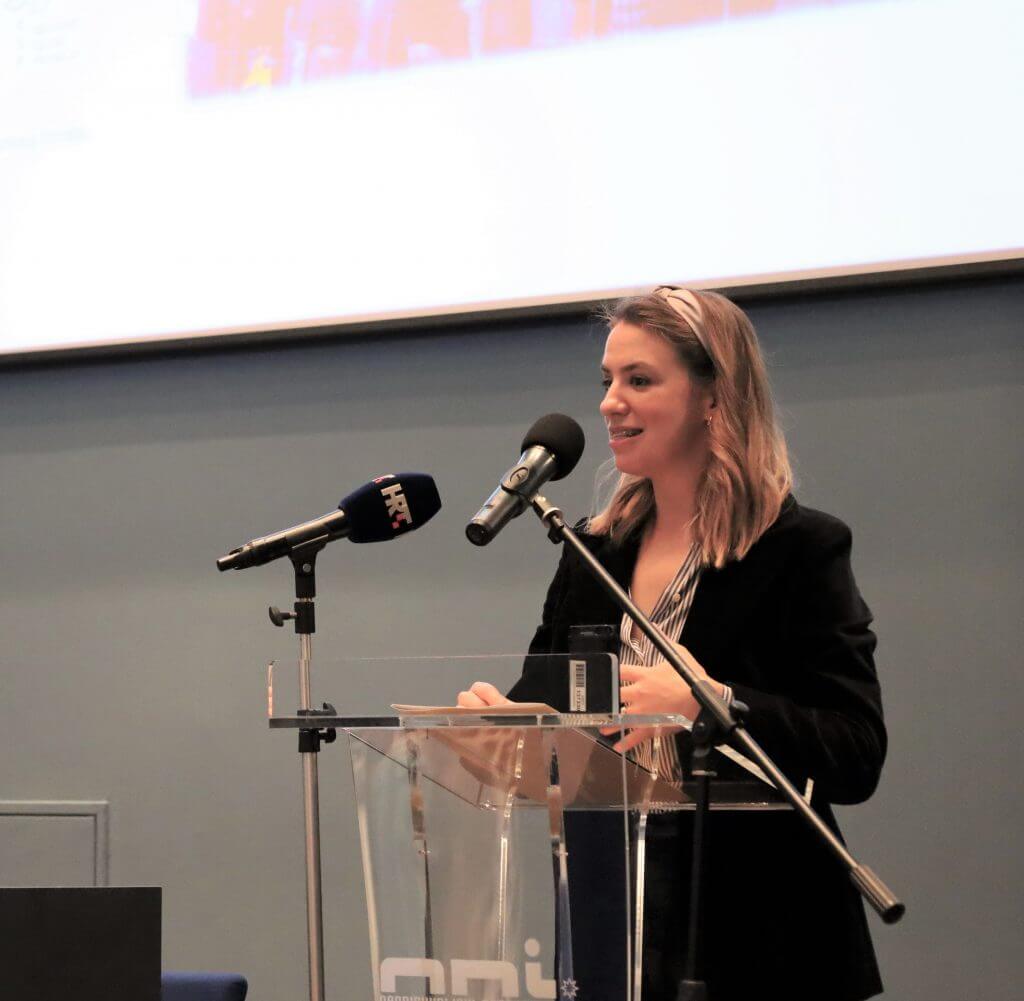
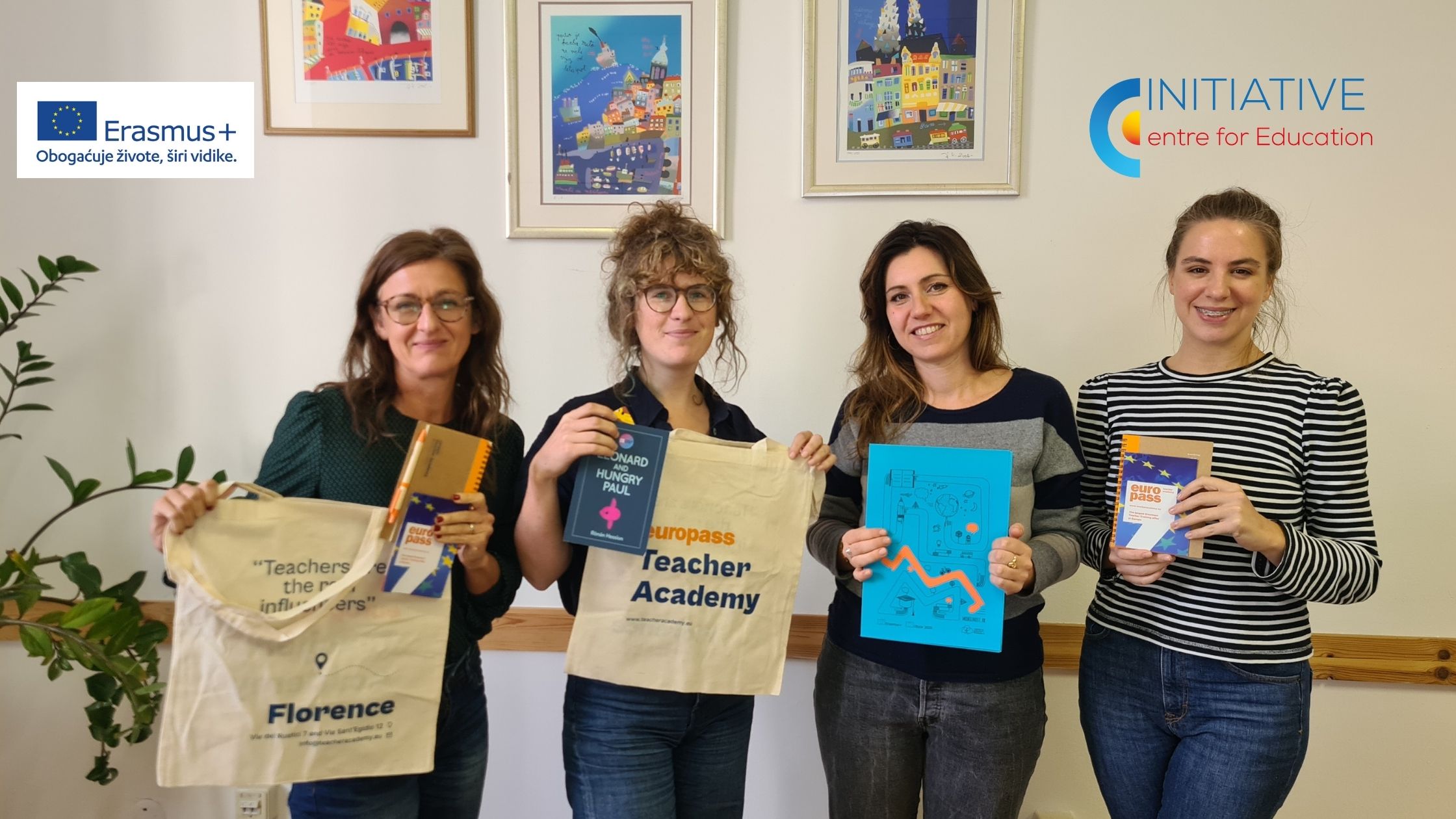
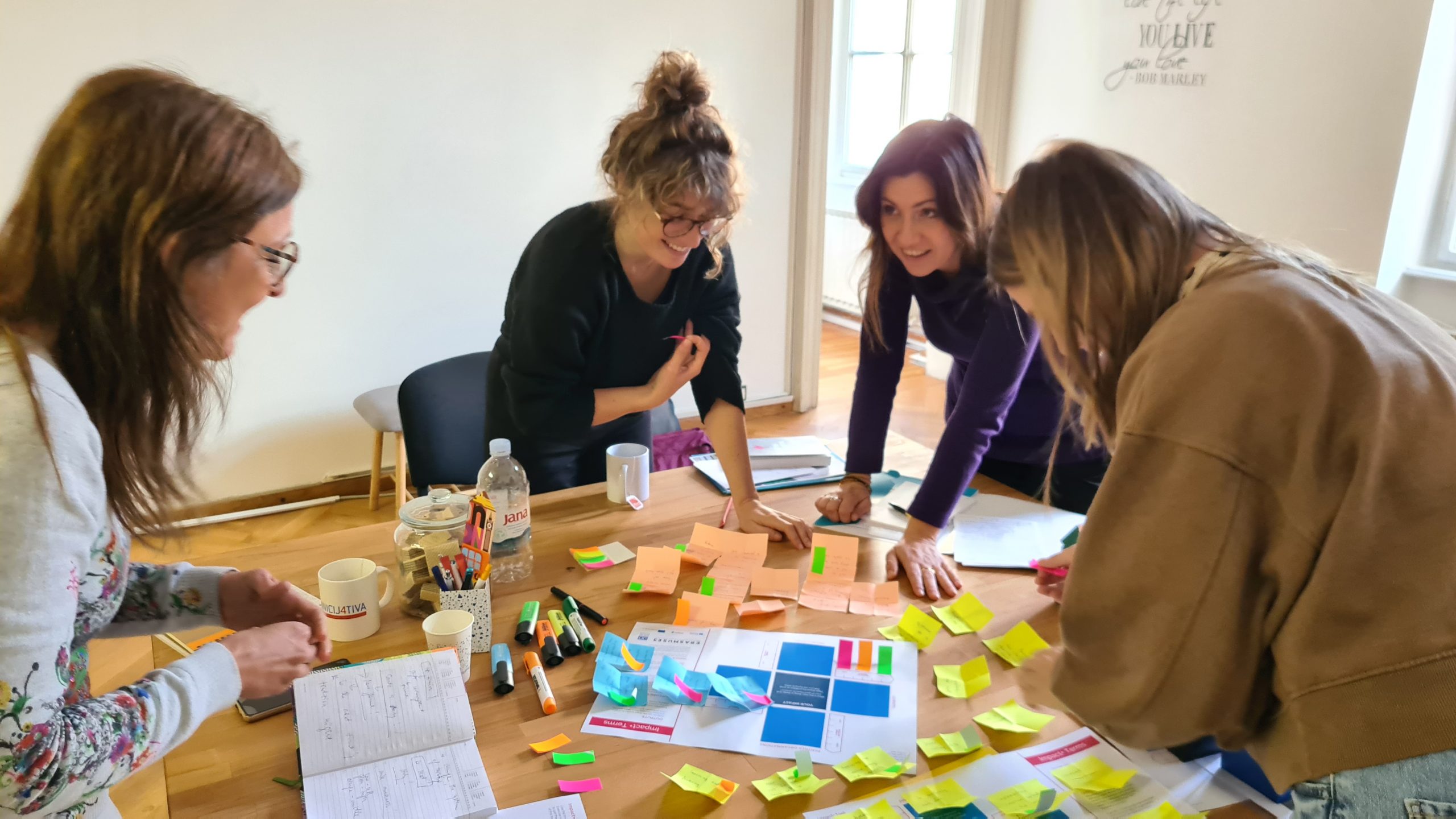
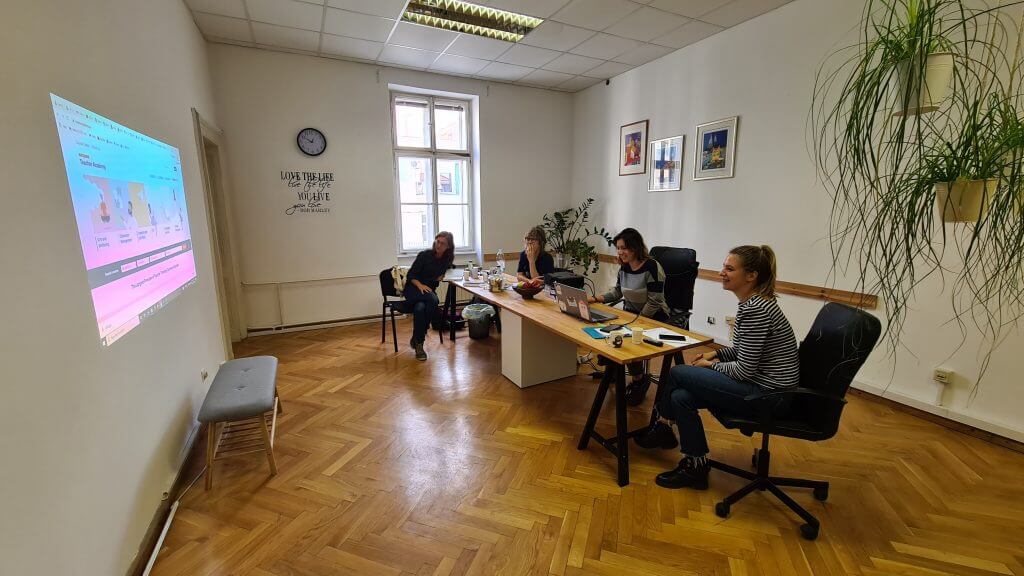
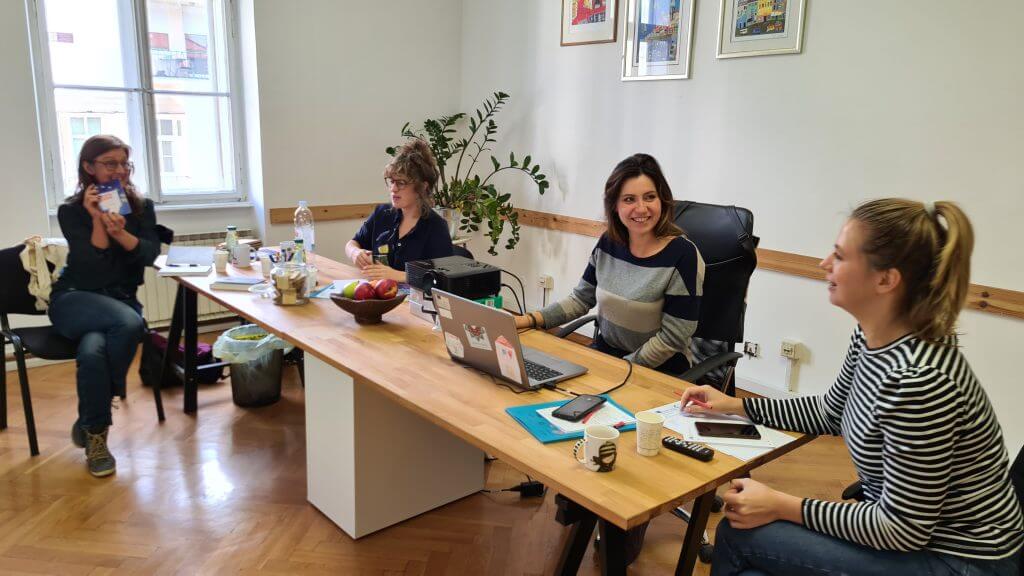
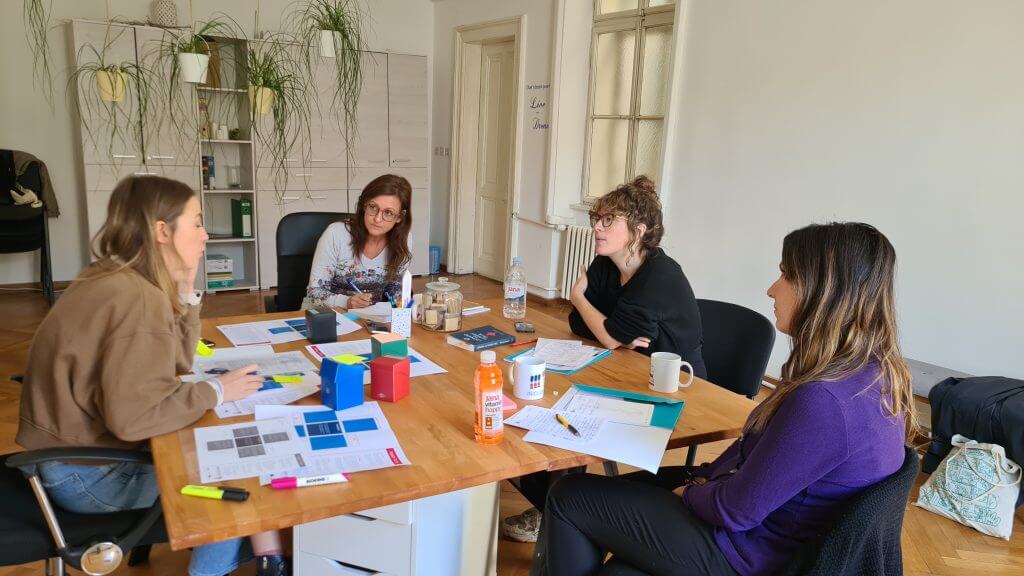
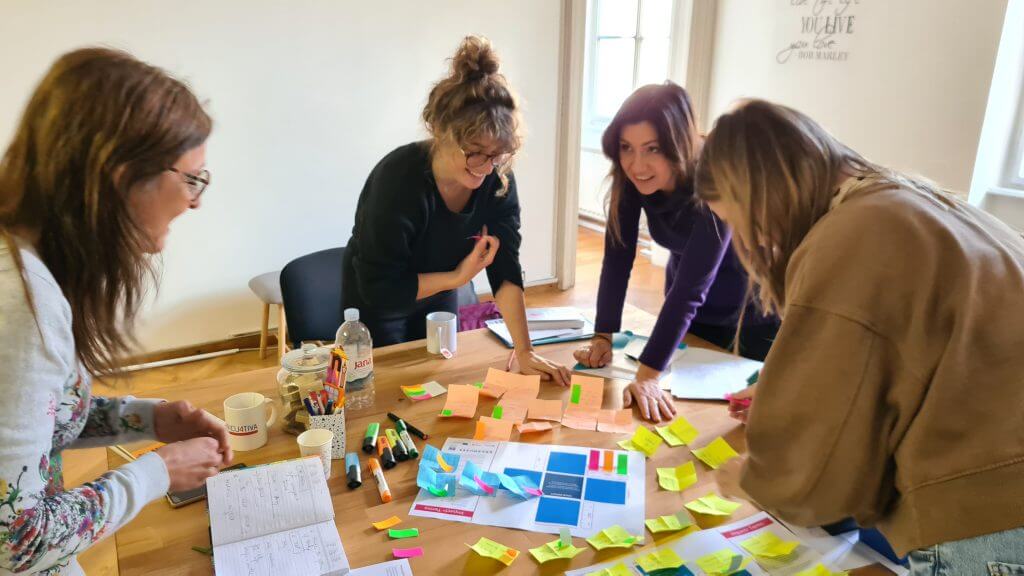
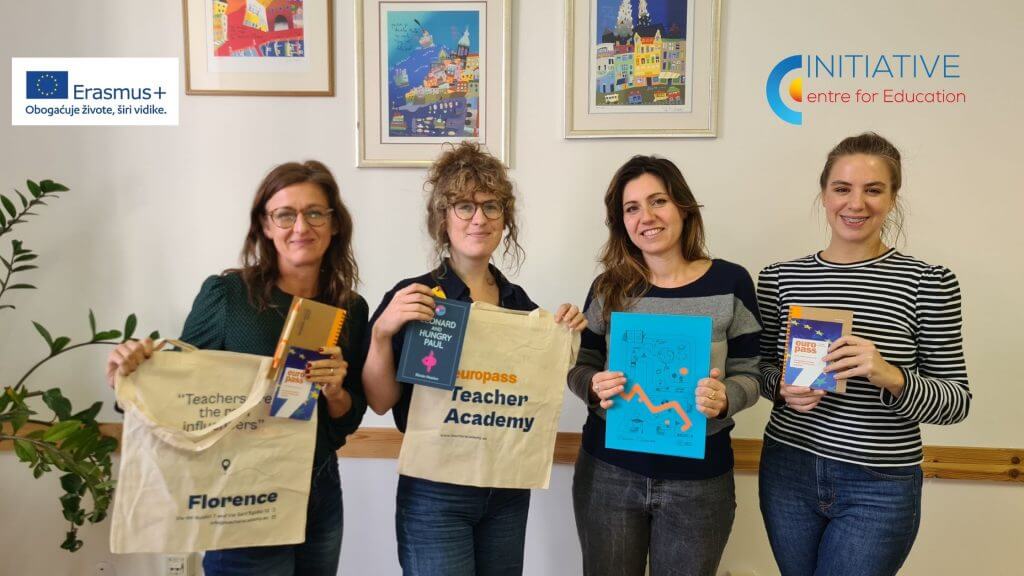
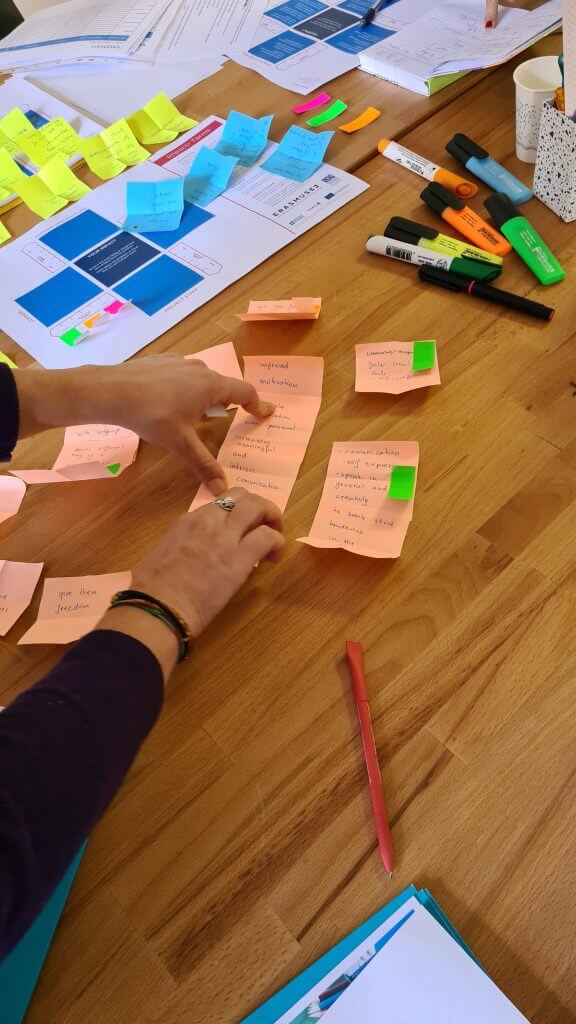
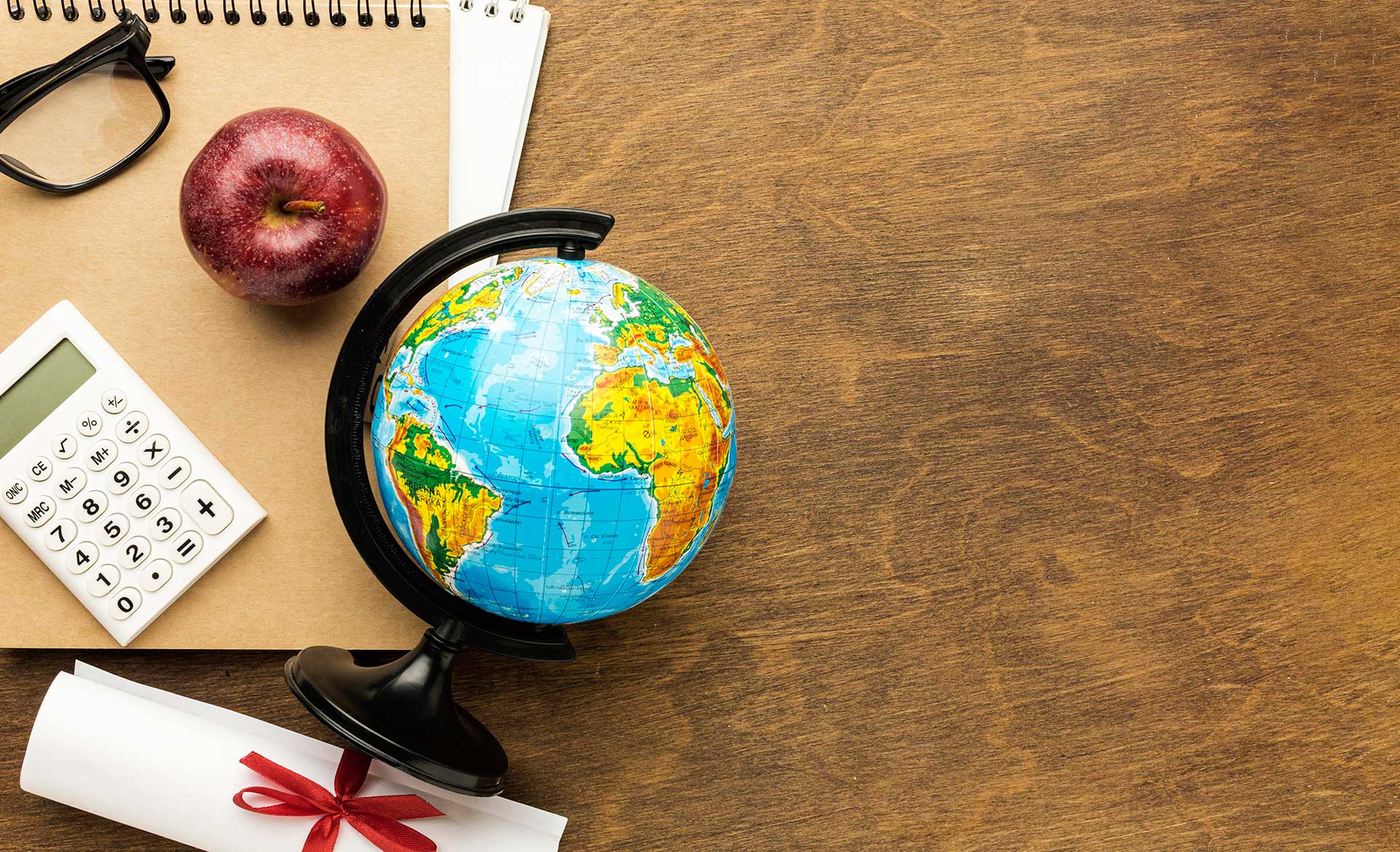
 but I assure you, you won’t need to become a vampire to participate. This activity is created for people who want to learn good practices from their colleagues in other similar European organizations. You will most likely be participating on meetings, classes and back office activities and tasks. This way – learning by seeing, you can implement newly learned skills and practices in your organization when you get back home.
but I assure you, you won’t need to become a vampire to participate. This activity is created for people who want to learn good practices from their colleagues in other similar European organizations. You will most likely be participating on meetings, classes and back office activities and tasks. This way – learning by seeing, you can implement newly learned skills and practices in your organization when you get back home.